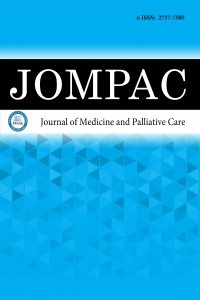1.
Arvanitakis M, Gkolfakis P, Despott EJ, et al. Endoscopicmanagement of enteral tubes in adult patients - part 1: definitionsand indications. European Society of Gastrointestinal Endoscopy(ESGE) Guideline. Endoscopy. 2021;53(1):81-92.
2.
Deliwala SS, Chandan S, Kumar A, et al. Direct percutaneousendoscopic jejunostomy (DPEJ) and percutaneous endoscopicgastrostomy with jejunal extension (PEG-J) technical success andoutcomes: Systematic review and meta-analysis. Endosc Int Open.2022;10(4): E488-E520. doi:10.1055/a-1774-4736
3.
Kamel WA, Al-Hashel JY. LCIG in treatment of non-motor symptoms in advanced Parkinson’s disease: reviewof literature. Brain Behav. 2020;10(9): e01757. doi:10.1002/brb3.1757
4.
Blaise AS, Baille G, Carrière N, et al. Safety and effectivenessof levodopa-carbidopa intestinal gel for advanced Parkinson’sdisease: a large single-center study. Rev Neurol (Paris).2020;176(4):268-276.
5.
Antonini A, Odin P, Pahwa R, et al. The long-term impact oflevodopa/carbidopa intestinal gel on ‘off ’-time in patients withadvanced Parkinson’s disease: a systematic review. Adv Ther.2021;38(6):2854-2890.
6.
Othman AA, Chatamra K, Mohamed ME, et al. Jejunal infusionof levodopa-carbidopa intestinal gel versus oral administration oflevodopa-carbidopa tablets in Japanese subjects with advancedParkinson’s disease: pharmacokinetics and pilot efficacy andsafety. Clin Pharmacokinet. 2015;54(9):975-984.
7.
Fernandez HH, Odin P. Levodopa-carbidopa intestinal gel fortreatment of advanced Parkinson’s disease. Curr Med Res Opin.2011;27(5):907-919.
8.
Cococcia S, Rovedatti L, Lenti MV, Pozzi L, De Grazia F, DiSabatino A. Safety and durability of PEG-J: a single-centreexperience. Scand J Gastroenterol. 2020;55(11):1377-1380.
9.
Udd M, Lyytinen J, Eerola-Rautio J, et al. Problems relatedto levodopa-carbidopa intestinal gel treatment in advancedParkinson’s disease. Brain Behav. 2017;7(7): e00737. doi:10.1002/brb3.737
10.
Viljaharju V, Mertsalmi T, Pauls KAM, et al. Single-center studyof 103 consecutive Parkinson’s disease patients with levodopa-carbidopa intestinal gel. Mov Disord Clin Pract. 2021;9(1):60-68.
11.
Standaert DG, Rodriguez RL, Slevin JT, et al. Effect of levodopa-carbidopa intestinal gel on non-motor symptoms in patientswith advanced Parkinson’s disease. Mov Disord Clin Pract.2017;4(6):829-837.
12.
Lopiano L, Modugno N, Marano P, et al. Motor and non-motoroutcomes in patients with advanced Parkinson’s disease treatedwith levodopa/carbidopa intestinal gel: final results of theGREENFIELD observational study. J Neurol. 2019;266(9):2164-2176.
13.
Epstein M, Johnson DA, Hawes R, et al. Long-term PEG-J tubesafety in patients with advanced Parkinson’s disease. Clin TranslGastroenterol. 2016;7(3): e159. doi:10.1038/ctg.2016.19
14.
Cheron J, Deviere J, Supiot F, et al. The use of enteral access forcontinuous delivery of levodopa-carbidopa in patients withadvanced Parkinson’s disease. United European Gastroenterol J.2017;5(1):60-68.
15.
Ishibashi Y, Shimo Y, Yube Y, et al. Technique and outcome ofpercutaneous endoscopic transgastric jejunostomy for continuousinfusion of levodopa-carbidopa intestinal gel for treatment ofParkinson’s disease. Scand J Gastroenterol. 2019;54(6):787-792.
16.
Yamashita K, Yube Y, Yamazaki Y, et al. The impact of tubereplacement timing during LCIG therapy on PEG-J associatedadverse events: a retrospective multicenter observationalstudy. BMC Neurol. 2021;21(1):242.
17.
Simoni S, Nigro P, Filidei M, et al. PEG-J replacement forduodenal levodopa infusion in Parkinson’s disease patients: aretrospective study. BMC Neurol. 2022;22(1):25.
18.
Rus T, Premzl M, Kriznar NZ, et al. Adverse effects of levodopa/carbidopa intrajejunal gel treatment: a single-center long-termfollow-up study. Acta Neurol Scand. 2022;146(5):537-544.
19.
Zopf Y, Konturek P, Nuernberger A, et al. Local infection afterplacement of percutaneous endoscopic gastrostomy tubes: aprospective study evaluating risk factors. Can J Gastroenterol.2008;22(12):987-991.
20.
Yamanishi Y, Choudhury ME, Yoshida A, et al. Impact ofintestinal bacteria on levodopa pharmacokinetics in LCIGtherapy. Mov Disord Clin Pract. 2022;9(3):362-368.
21.
de Vries T, de Ruiter A, Westendorp A, van Zeijl J. Microorganismsand complaints in outpatients with a percutaneous endoscopicgastrostomy catheter. Am J Infect Control. 2015;43(8):802-804.
22.
Wirth R, Bauer J, Sieber C. Necrotizing Candida infectionafter percutaneous endoscopic gastrostomy: a fatal and rarecomplication. JPEN J Parenter Enteral Nutr. 2008;32(3):285-287.

